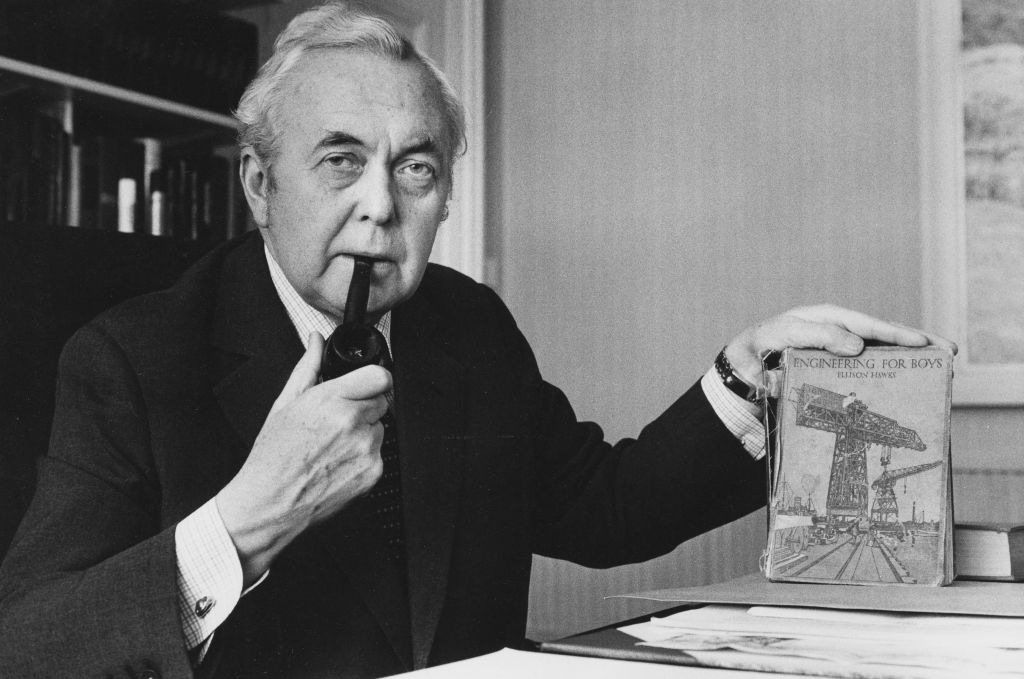Keir Starmer has endured a rocky start as Prime Minister. His personal net approval rating has now fallen from +11 at the time of July’s general election to -38 this week — a net drop of 49 points. Research by More in Common has shown that the most unpopular issues for voters are means-testing the winter fuel allowance, releasing prisoners early, and not reducing illegal migration. When asked to name the biggest achievements of the new government, “none of the above” and “don’t know” take the top two places.
Starmer is not the first Labour leader to win an election and immediately face difficult headlines. Harold Wilson, who became the third Labour prime minister 60 years ago this month, saw his first few months marred by a pension freeze, anger over MPs’ pay, and backlash over immigration. This all culminated in an embarrassing by-election defeat in a previously safe Labour constituency. Nonetheless, Wilson was able to turn things around and win a general election a year later. There are many parallels between Starmer’s and Wilson’s predicaments, but also some crucial differences.
When Wilson became prime minister in October 1964, his party had been in Opposition for 13 years. Although commentators expected Labour to sweep the exhausted Conservatives out of power, the new government’s popular mandate was weaker than expected. Like with Starmer compared to Jeremy Corbyn in 2019, Labour had actually won fewer votes than at the previous election. Yet a six-point drop in the Conservative vote share and lower turnout had given Labour a Parliamentary majority, albeit much smaller than the one Starmer currently enjoys.
Immediately, Wilson’s administration announced that the Conservatives had left the country’s finances in a more ruinous condition than expected, echoing Chancellor Rachel Reeves’s claims about a fiscal black hole. In 1964, outgoing Chancellor Reginald Maudling said to his successor Jim Callaghan on the way out the door: “Sorry, old cock, to leave it in this shape.” An £800-million deficit faced the Government, and tough decisions had to be made.
One of these decisions was to delay an increase in old-age pensions. To make matters worse, the Government proceeded with an increase in MPs’ pay, leading to accusations that politicians were stuffing their own pockets while picking those of the elderly. Meanwhile, another dark cloud hung over the new Labour government: backlash to increased levels of immigration. Like now, it was under the previous 13 years of Conservative government that immigration to Britain had increased substantially, in spite of increasingly hostile Tory rhetoric. Nonetheless, the Labour Party was seen to be more pro-immigration, having vigorously opposed Conservative immigration controls when in Opposition.
The Government’s first electoral test came in January 1965, when two by-elections were held in Nuneaton and Leyton. Here, the issues of race and immigration were at the fore, with Labour’s first campaign event invaded by the far-Right and flour bombs thrown at the stage. On the 99th day of the Wilson government, a new Conservative MP was elected for Leyton by 205 votes. It was a huge embarrassment for the new Labour government, despite victory in Nuneaton on the same day. Three days later, however, Winston Churchill died and headlines quickly shifted — much to Wilson’s relief.
Yet the result spooked the Prime Minister, prompting him to refocus his efforts on political popularity rather than unpopular “tough decisions”. A little over a year later, Wilson led Labour to a landslide.
There may be lessons here for Starmer. While it might please some in the City to take a “tough” or fiscally prudent line, it is not ultimately why the British people voted for a Labour government. People expect, indeed hope, for Labour governments to boost investment in public services and strengthen the social safety net. When the Government does the opposite, even if blaming its predecessors or wider economic forces, there’s little thanks from the voters. And, in a democracy, it’s the votes of the people, not the City set, which decide your fate.
Wilson was able to turn around his government, and Starmer could potentially do the same, but there are important differences between the two men. Wilson created a Cabinet of all talents, appointing ministers on the basis of ability rather than factional loyalty. Some of his most important early ministers, such as Callaghan and George Brown, came from the opposite side of the party to him. Nonetheless, he respected and ultimately benefitted from their talent. This is not the approach to ministerial appointments that Starmer has generally pursued.
Additionally, Wilson was a much more experienced politician than Starmer. By the time that he became prime minister, Wilson had already been an MP for nearly two decades, more than twice as long as Starmer, and had already served in the Cabinet. All of these factors ultimately gave him a strong foundation from which to rebuild after his initial errors.
Wilson was also able to make a case to the country that Labour needed a bigger majority to see through its programme, whereas Starmer starts with a big majority. In an age of public anger and cynicism about politicians’ intentions, voters may be much less understanding than they were for Wilson six decades ago.











Join the discussion
Join like minded readers that support our journalism by becoming a paid subscriber
To join the discussion in the comments, become a paid subscriber.
Join like minded readers that support our journalism, read unlimited articles and enjoy other subscriber-only benefits.
Subscribe